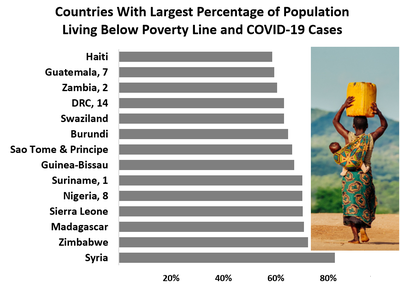COVID-19 Advice Is Difficult for Some Nations: BBC
One out of seven people around the world, about 30 percent of the world’s urban population, lives in close quarters with minimal access to ventilation, sewage facilities or clean water, all of which help prevent spread of disease. Writing for BBC News, Swaminathan Natarajan describes a family of eight living in a one-room home with no running water, electricity or waste collection. Soap is a luxury and self-quarantine is impossible for many Africans and Asians, notes one former WHO representative. Natarajan points out that the cities of Johannesburg and Chennai almost ran out of water last year. The article describes one family as relying on untreated water from agricultural wells from more than 50 kilometers away. The governments are not as poor as their individual citizens, noted a health services specialist from the University of Glasgow, and all most step up responses with specific guidance for cities and the poor. – YaleGlobal
COVID-19 Advice Is Difficult for Some Nations: BBC
The least developed economies lack water, cleaning supplies, space to follow World Health Organization’s COVID-19 advice on hand-washing and social-distancing
Friday, March 20, 2020
Read the article from BBC News about the challenges of following WHO advice on preventing the spread of COVID-19 in least developed nations.

Vulnerable: Countries are listed with confirmed cases as known, but testing is uneven (Source: Photius, CIA WorldFactbook, news sources; photo, World Vision )
BBC News
Copyright © 2020 BBC